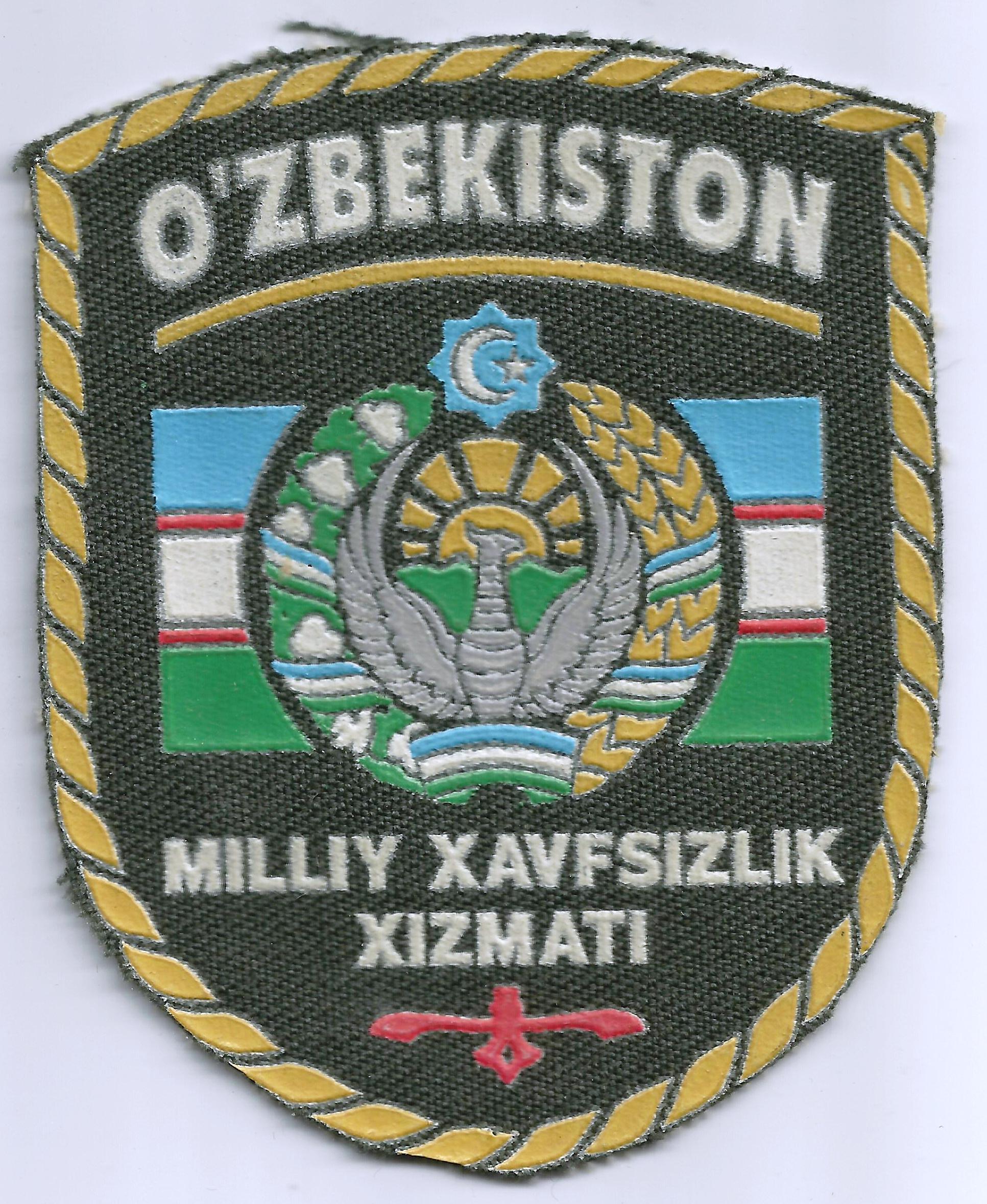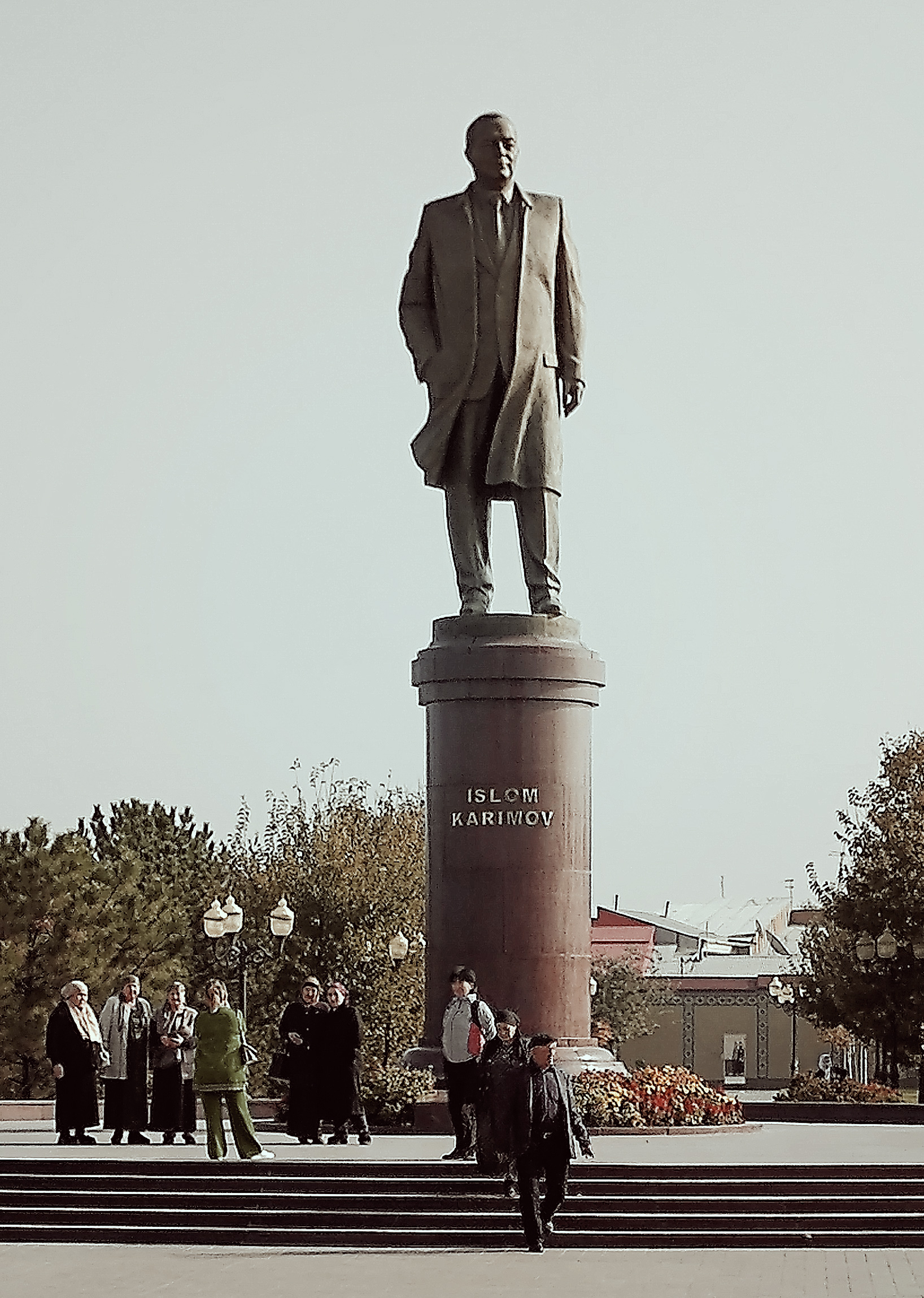|
Andijon Massacre
On 13 May 2005, protests erupted in Andijan, Uzbekistan. At one point, troops from the Uzbek National Security Service (SNB) fired into a crowd of protesters. Estimates of those killed on 13 May range from 187, the official count of the government, to several hundred. A defector from the SNB alleged that 1,500 were killed. The bodies of many of those who died were allegedly hidden in mass graves following the massacre. Three narratives concerning the events exist: * The Uzbek government said the Islamic Movement of Uzbekistan organised the unrest and the protesters were members of Hizb ut-Tahrir. * Critics of the government argue that the Islamist radical label provides a pretext for maintaining a repressive regime in the country. * A third theory is that the dispute was really an inter-clan struggle for state power. The Uzbek government did however acknowledge that poor economic conditions in the region and popular resentment played a role in the uprising. Troops may possibl ... [...More Info...] [...Related Items...] OR: [Wikipedia] [Google] [Baidu] |
Navoi Square
Navoi Square (Uzbek language, Uzbek: Navoiy maydoni) is an area in the city center of Andijan, Uzbekistan. It was originally named Bobur Square, after Babur, the founder of the Mughal dynasty. On 13 May 2005, it was the site of the Andijan Massacre. References {{coord missing, Uzbekistan Andijan Squares in Uzbekistan ... [...More Info...] [...Related Items...] OR: [Wikipedia] [Google] [Baidu] |
Uzbek Militsiya
Uzbek may refer to: * Someone or something related to Uzbekistan * Uzbeks, an ethnic group * Uzbek language * Uzbek cuisine * Uzbek culture * Uzbeg (Ozbeg) Khan (1282–1341, r. 1313–1341), the khan of the Golden Horde of the Mongol Empire * Muzaffar al-Din Uzbek Muzaffar al-Din Uzbek, also known as Özbeg ibn Muhammad Pahlawan (died 1225) was the fifth and last ruler (''atabeg'') of the Eldiguzids from 1210 to 1225, during the later Seljuk and Khwarezmian periods. He was married to Malika Khatun, wido ... or Özbeg ibn Muhammad Pahlawan, last ruler of the Eldiguzids See also * * {{disambiguation Language and nationality disambiguation pages ... [...More Info...] [...Related Items...] OR: [Wikipedia] [Google] [Baidu] |
Mass Grave
A mass grave is a grave containing multiple human corpses, which may or may not be identified prior to burial. The United Nations has defined a criminal mass grave as a burial site containing three or more victims of execution, although an exact definition is not unanimously agreed upon. Mass graves are usually created after many people die or are killed, and there is a desire to bury the corpses quickly for sanitation concerns. Although mass graves can be used during major conflicts such as war and crime, in modern times they may be used after a famine, epidemic, or natural disaster. In disasters, mass graves are used for infection and disease control. In such cases, there is often a breakdown of the social infrastructure that would enable proper identification and disposal of individual bodies. History Mass or communal burial was a common practice before the development of a dependable crematory chamber by Ludovico Brunetti in 1873. In ancient Rome waste and dead bodies of the ... [...More Info...] [...Related Items...] OR: [Wikipedia] [Google] [Baidu] |
RFE/RL
Radio Free Europe/Radio Liberty (RFE/RL) is a United States government funded organization that broadcasts and reports news, information, and analysis to countries in Eastern Europe, Central Asia, Caucasus, and the Middle East where it says that "the free flow of information is either banned by government authorities or not fully developed". RFE/RL is a private, non-profit 501(c)(3) corporation supervised by the U.S. Agency for Global Media, an independent government agency overseeing all U.S. federal government international broadcasting services. Daisy Sindelar is the vice president and editor-in-chief of RFE. RFE/RL broadcasts in 27 languages to 23 countries. The organization has been headquartered in Prague, Czech Republic, since 1995, and has 21 local bureaus with over 500 core staff and 1,300 stringers and freelancers in countries throughout their broadcast region. In addition, it has 700 employees at its headquarters and corporate office in Washington, D.C. Radio Free Eu ... [...More Info...] [...Related Items...] OR: [Wikipedia] [Google] [Baidu] |
State Security Service (Uzbekistan)
The State Security Service ( Uzbek ''Davlat Xavfsizlik Xizmati'', ''DXX''; in Russian ''Служба государственной безопасности'', ''СГБ'', often romanised as ''SGB'') is the national intelligence agency of the government of Uzbekistan. It was created on 26 September 1991 as a successor to the KGB and its republican affiliate in the Uzbek SSR. Since the collapse of the Soviet Union, it has retained the same responsibilities and a similar range of functional units, including paramilitary police and special forces. It was renamed from the National Security Service on 14 March 2018. The SNB was a rival of the Interior Ministry until 2005, when it was brought under its control. In recent years, the SNB has been sidelined in favor of the Uzbekistan National Guard, which was largely seen as being loyal to former president Islam Karimov. The SNB is described by Amnesty International and the Institute for War and Peace Reporting as a secret police force. ... [...More Info...] [...Related Items...] OR: [Wikipedia] [Google] [Baidu] |
Zokir Almatov
Zokir Almatov (born 10 October 1949 in Zangiata, Tashkent Region, Uzbek SSR, Soviet Union), sometimes romanized Zakir, was an Uzbek politician who was the interior minister of Uzbekistan until 2005. In 1967 he graduated from high school and immediately began to work at the Tashavtomash plant. He joined the Soviet Army in 1971, serving in the Internal Troops The Internal Troops, full name Internal Troops of the Ministry for Internal Affairs (MVD) (russian: Внутренние войска Министерства внутренних дел, Vnutrenniye Voiska Ministerstva Vnutrennikh Del; abbreviat .... In 1976 he graduated from Tashkent State University's Faculty of Law, which allowed him to work in district police departments around the country. From 1990 to 1991, he was Head of the Internal Affairs Directorate of the Tashkent Regional Executive Committee. On September 16, 1991, as a Colonel Almatov, was appointed as the first Minister of Internal Affairs of the Republic of ... [...More Info...] [...Related Items...] OR: [Wikipedia] [Google] [Baidu] |
Rustam Inoyatov
Rustam Rasulovich Inoyatov (russian: Рустам Расулович Иноятов, born 22 June 1944) is a former Uzbek government official, as well as a colonel general. He was head of the National Security Service of Uzbekistan (SNB) from 1995 until his dismissal in January 2018. He was said to have been part of the Tashkent clan, a powerful faction within the Uzbek elite. He was said to be one of the most powerful men in the country. Biography Rustam Rasulovich Inoyatov was born in the city of Sherabad, Surkhandarya region. His father – Rasul Inoyatov, KGB colonel. From 1965 to 1967 he worked as a concrete worker in the Tashkent Building Trust, at the same time he studied at the university. In 1968 he graduated from the Faculty of Iranian Philology of the Tashkent State University. After graduation, he served in the ranks of the Soviet army. During military service, he was accepted into the service of the KGB of the USSR. Worked in various officer positions in the KGB ... [...More Info...] [...Related Items...] OR: [Wikipedia] [Google] [Baidu] |
Ismail Ergashev
Ismail Ergashevitch Ergashev ( uz, Ismoil Ergashevitch Ergashev) was an Uzbek general who has served as second person to hold the post of Chief of the Joint Headquarters of the Armed Forces of the Armed Forces of Uzbekistan from 2004 to 2005. He was one of the first military leaders of Uzbekistan. Biography He was born on August 5, 1945, in the Chelak District of the Samarqand Region. Over the years, he served in various command positions. After the Dissolution of the Soviet Union, he headed the department of artillery of the Ministry of Defense, after which he was commander of artillery until 1997. From 1997 to 1999, he was deputy minister of defense for logistics and capital construction, and from 1999 to 2000 was deputy minister of defense for combat training. He became the first head of the Central Military District, serving until 2004. That same year, he became First Deputy Minister of Defense and Chief of the Joint Headquarters of the Armed Forces, succeeding Tulkun Kas ... [...More Info...] [...Related Items...] OR: [Wikipedia] [Google] [Baidu] |
Kadyr Gulyamov
Kadyr Gafurovich Gulamov ( uz, Qodir Gʻulomov, Қодир Ғуломов, russian: Кадыр Гафурович Гуламов; born February 17, 1945) is an Uzbek politician who has served as Minister of Defence of Uzbekistan. To date, he was the first and only civilian leader of an Uzbek military department. Biography He was born in Tashkent in February 1945. He is the son of the Soviet-Uzbek poet Gʻafur Gʻulom. In 1963 he began his studies at Tashkent State University before being sent to the Academy of Sciences of Uzbekistan in 1968. In the 30 years that followed, he worked as an official in the academy, becoming the Chief Scientific Secretary in 1999. He held his first government position that same year, when he was appointed Deputy Minister of Defense and Rector of the Academy of the Armed Forces of Uzbekistan. In May 1999, he was drafted into the Uzbek military and by presidential decree he was promoted to the rank of colonel. He became the first civilian minister o ... [...More Info...] [...Related Items...] OR: [Wikipedia] [Google] [Baidu] |
Shavkat Mirziyoyev
Shavkat Miromonovich Mirziyoyev (Uzbek Latin: ''Shavkat Miromonovich (Miromon o‘g‘li) Mirziyoyev'', Uzbek Cyrillic: Шавкат Миромонович (Миромон ўғли) Мирзиёев ; born 24 July 1957) is an Uzbek politician who has served as President of Uzbekistan and Supreme Commander-in-Chief of the Armed Forces of Uzbekistan since 2016. Previously he was the Prime Minister of Uzbekistan from 2003Brief profile of Mirziyoyev , Radio Free Europe/Radio Liberty. , 25 Septembe ... [...More Info...] [...Related Items...] OR: [Wikipedia] [Google] [Baidu] |
Islam Karimov
Islam Abduganiyevich Karimov ( uz, Islom Abdugʻaniyevich Karimov / Ислом Абдуғаниевич Каримов, italics=no; russian: link=no, Ислам Абдуганиевич Каримов; 30 January 1938 – 2 September 2016) was the leader of Uzbekistan and its predecessor state, the Uzbek Soviet Socialist Republic, from 1989 until his death in 2016. He was the last First Secretary of the Communist Party of Uzbekistan from 1989 to 1991, when the party was reconstituted as the People's Democratic Party of Uzbekistan (PDP); he led the PDP until 1996. He was the President of the Uzbek SSR from 24 March 1990 until he declared the independence of Uzbekistan on 1 September 1991. He declared Uzbekistan an independent nation on 31 August 1991. He subsequently won a non-democratic presidential election on 29 December 1991, with 86% of the vote. Foreign observers and opposition party cited voting irregularities, alleging state-run propaganda and a falsified vote count. Kari ... [...More Info...] [...Related Items...] OR: [Wikipedia] [Google] [Baidu] |
Uzbek Ground Forces
The Uzbek Ground Forces are the land component of the Armed Forces of the Republic of Uzbekistan. Operating since the collapse of the Soviet Union in 1991, the army is made up of former Soviet Army units that were in the territory of Uzbekistan. As of 2006, it had around 40,000 active personnel. Much of the equipment it uses is also old Soviet material, and the government of Uzbekistan has not given much effort to replace it with modern equipment. History The armed forces were created in 1992, and along with the army, the air and air defense forces, national guard, and border service were created. Islam Karimov, the President of Uzbekistan, had begun calling native Uzbeks in the Soviet Armed Forces back to Uzbekistan to fill the ranks of the newly created ground forces, though many refused to return and renounced their citizenship. Russians made up the majority of the officer corps, while the enlisted personnel were mainly Uzbek. Uzbekistan then became the only Central Asian sta ... [...More Info...] [...Related Items...] OR: [Wikipedia] [Google] [Baidu] |




.jpg)
